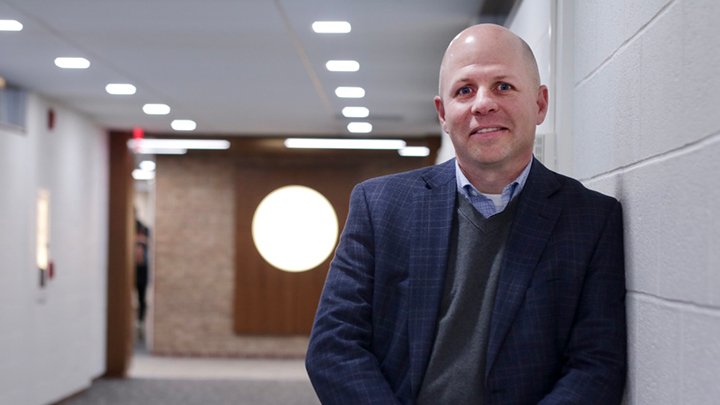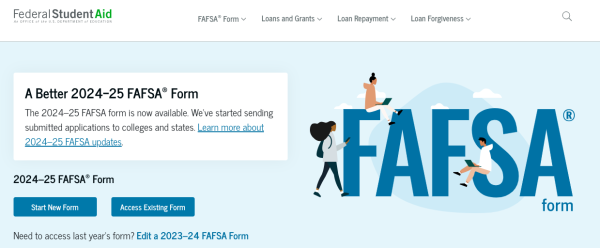An interview with Jim English, vice president of finance
This interview was edited for style and length.
Chimes: Can you tell me a bit about your background? What influenced you to want to work in finance management? Why Calvin?
JE: Calvin University is a unique place with a great reputation for providing an excellent education in a faith-based setting. I am honored and thrilled to join Calvin at this time in its history and during this stage of my career. I started my career as a math teacher and then pursued a master’s degree in business administration. I have more than 17 years of experience in managing school finances. Most recently, I was associate superintendent of business services at West Ottawa Public Schools in Holland, Michigan. There we faced financial deficits due to falling enrollment, but were able to address deficits and invest for the future.
Chimes: You’ve come to the university amidst a series of budget cuts. What are your thoughts on what has already been done? Are you currently looking to make more budget cuts or undo prior cuts?
JE: The number of graduating high school seniors is declining in Michigan, which is challenging since about half our students come from Michigan. There will always be disagreements about the budget, but Calvin will continue to work towards a balanced budget. At the same time, we need to invest in Calvin’s programs, infrastructure, and facilities to provide the best experience to students. The real challenge is ensuring we have the funds to make key investments that will position us for the future. Going forward, I hope to discuss what Calvin’s priorities and needed investments are as we work to deliver on our mission and live within our available resources.
Chimes: How do you feel about the university’s investment portfolio? Are you looking at changing the way we invest in real estate or stock markets?
JE: Calvin’s current program for investing endowments and excess funds is strong. I am particularly impressed by the Knight Investment Management program, which allows students to invest funds in the market. I’m not currently planning to recommend that we make any major changes, but we’re already working with the board of trustees on adopting a new five-year plan for the endowment. That will likely result in only minor changes to the portfolio.
Chimes: What’s your ideal sandwich?
JE: I enjoy a good french dip.
Chimes: Aside from just hitting our financial targets, what does success look like to you in this position?
JE: Financial stability with the ability to invest in Calvin’s future. The financial services office works behind the scenes to ensure we have the money we need where we need it. If I’m successful, we’ll be talking in the future about making strategic investments rather than discussing budget cuts. The Vision 2030 plan also shows where we want to head as an institution.
Chimes: What do you most want to address as you step into this role?
JE: Calvin University needs to be affordable for students while also providing a great education in a faith-based setting where students can personally wrestle with God’s truths. Calvin also needs to be a destination that attracts talented faculty and staff. I just want to be a part of the team that makes this happen both now and for future generations of students and staff.
Chimes: We recently saw an increase in tuition costs. Do you expect tuition costs to increase, decrease, or stay the same in the next few years? Why?
JE: Calvin needs to offer a competitive education at a competitive price. We will need to analyze the cost each year to make sure the price is at the right level to allow us to provide a top-notch education. The challenge is making sure we are using the resources we have to deliver the education students need in 2020. We also need to work to eliminate any waste so that students and parents are paying for things that add value to the education provided to Calvin students.
Chimes: President LeRoy has stated, and the financial reports show, that the school’s assets have been improving over the past decade. Are we presently where we want to be financially? If not, where do we hope to be? What is our end goal?
JE: Sally Vander Ploeg and other administrators, the board of trustees, and many others have worked to put us in a good place. The finances have significantly improved over the past several years thanks to their work. I feel like I am joining Calvin at a great time thanks to all of their efforts. I will be working to determine the key performance indicators Calvin should use to determine its financial progress, but there is no doubt that Calvin already has the long-term focus necessary to be successful financially.







Jay Timmer • Apr 7, 2021 at 10:07 pm
So happy you are at Calvin.!
4/7/21 happy birthday!
Calvin has a good man on a position that needed one!!!